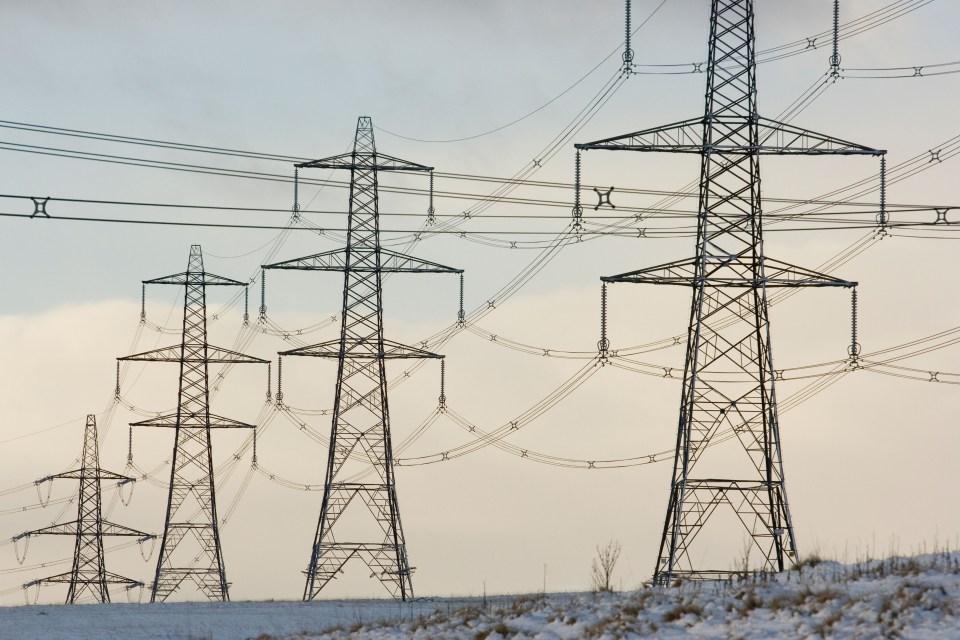WARNINGS of potential blackouts this winter have been issued, with “tight days” for energy supply expected in early December and mid-January.
The National Energy System Operator (NESO) has warned that there may still be tight periods this winter where electricity supply struggles to meet demand.
In these cases, system notices could be issued to increase production, with imported electricity from Europe helping to prevent blackouts.
Despite the concerns, NESO says spare supply, known as electricity margins, is at its strongest level since 2020.
It added that new battery storage along with European imports will play a key role in avoiding disruptions.
The electricity grid operator and National Gas released their winter outlook reports as energy prices rose earlier this month following an increase in the price cap.
NESO’S report said: “We expect a sufficient operational surplus throughout winter, although there may still be tight days that require us to use our standard operating tools, including system notices.”
System notices are how the grid operator informs the wider energy industry that electricity supply has not matched demand, allowing for production to increase if needed.
Early data from electricity firms and forecasters has suggested that “tight days” are most likely to take place in early December or mid-January.
Neso added that imports will be available when needed to help cover demand, supported by “adequate electricity supply across Europe”.
Deborah Petterson, director of resilience and emergency management at NESO, said: “A resilient and reliable energy supply is fundamental to our way of life.
“At NESO we are looking at the upcoming winter and can report this year’s winter outlook sets out the strongest electricity margins in six years.
“It is critical that we continue our work with the wider energy industry to prepare for the coming months to build on this foundation and maintain our world-leading track record of reliability.”
What about gas supplies?
The latest analysis from National Gas indicated that Great Britain has enough gas supply capability to meet peak demand.
It indicated supply can meet demand, even “even accounting for unforeseen network outage scenarios”.
The gas network operator said gas demand is expected to be 3% lower than last winter, easing pressure on supply.
It said high-demand days are still expected but it stressed that it is “confident” the market will operate as needed.
Glenn Bryn-Jacobsen, director of energy systems and resilience at National Gas, said: “As we head into winter, we remain confident in the resilience of our gas system and our ability to meet Britain’s energy needs during periods of peak demand.
“The energy landscape is evolving, with a growing reliance on imports and the continued decline of UK continental shelf supplies.
“Meeting these challenges requires a co-ordinated, forward-looking approach, and we’re working closely with Government, industry, and regulators to develop the right solutions that safeguard security of supply for the future.”
But the report from National Gas shows a fall in Britain’s gas storage capabilities, thanks to the Rough storage site off the coast of Yorkshire no longer storing gas, which means there is an increased reliability on importing liquified natural gas (LNG) to plug the gap in times of high demand.
The facility in the North Sea is the largest of its kind in the UK, but owner Centrica has stopped filling it with natural gas amid concerns over its financial viability.
The Rough site comprises about half of Britain’s storage capacity, and acts as a buffer when the weather is especially cold and demand for gas spikes.
Centrica has long warned it will be decommissioned without government support to allow investment in the site.
Last winter, Britain narrowly avoided blackout warnings as freezing weather caused wind power to plunge, leaving the grid struggling to meet demand.
NESO paid £21million – ten times the usual rate – to keep gas power plants running to balance the shortfall in January.
Experts criticised the system operator for failing to predict peak energy demand and relying too heavily on renewable energy during winter.
Wind power dropped to 17.6%, while gas provided half of the country’s electricity.
Critics argued this reliance on weather-dependent energy left Britain vulnerable and called for more investment in gas and nuclear power for reliable supply.
